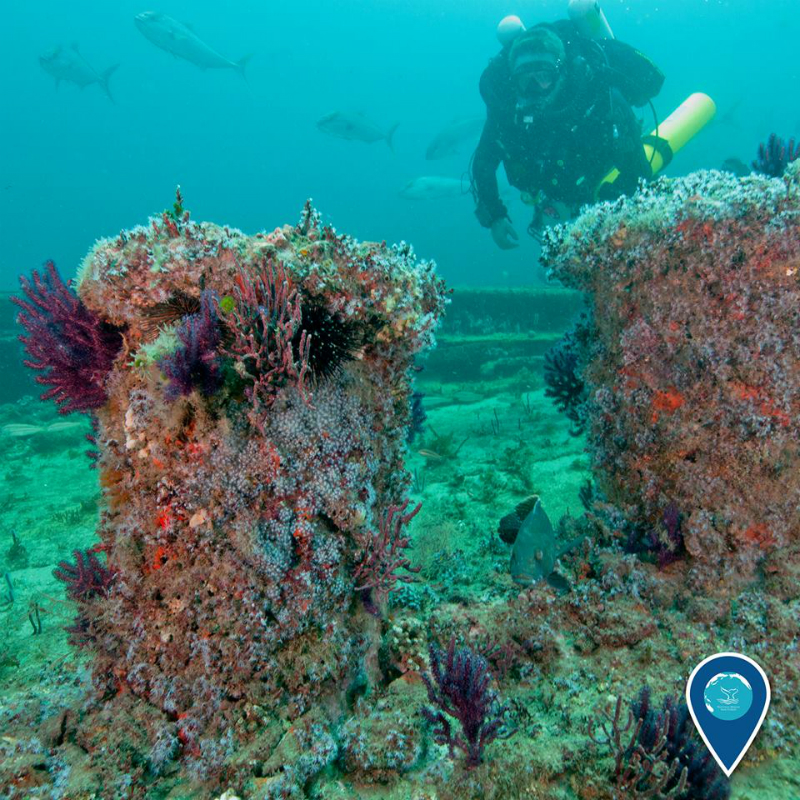12 Outstanding Artificial Reefs to Visit
Ashkhabad shipwreck, North Carolina, USA

Suitable for novice to intermediate divers (according to Discovery Diving), the Russian tanker Ashkhabad sank to the ocean floor off North Carolina in 1942. It was torpedoed by a German U-boat and then finished off with a round of explosives that sent it to its watery grave. Resting in 55 feet (17 m) of water, Ashkhabad measures 401 feet (122 m) in length and is currently home to colorful corals as well as other local sea life such as barracuda, grouper and stingrays.
Koh Tao reef cubes, Thailand

In 2015, more than 2,000 concrete cubes were installed around Koh Tao island, in one of the largest artificial reef projects in the Gulf of Thailand. Each cube frame weighs approximately 1.2 tons (1,089 kilograms), and flotation bags were attached to them so that divers could maneuver them into position underwater, according to the New Heaven Reef Conservation Program (NHRCP), which engaged in the artificial reef construction. NHRCP was founded by New Heaven Diving School, an organization that offers certification for advanced divers, training for divers interested in marine conservation, and instruction for beginners. Happy diving!
Sign up for the Live Science daily newsletter now
Get the world’s most fascinating discoveries delivered straight to your inbox.

Mindy Weisberger is an editor at Scholastic and a former Live Science channel editor and senior writer. She has reported on general science, covering climate change, paleontology, biology and space. Mindy studied film at Columbia University; prior to Live Science she produced, wrote and directed media for the American Museum of Natural History in New York City. Her videos about dinosaurs, astrophysics, biodiversity and evolution appear in museums and science centers worldwide, earning awards such as the CINE Golden Eagle and the Communicator Award of Excellence. Her writing has also appeared in Scientific American, The Washington Post and How It Works Magazine. Her book "Rise of the Zombie Bugs: The Surprising Science of Parasitic Mind Control" will be published in spring 2025 by Johns Hopkins University Press.










